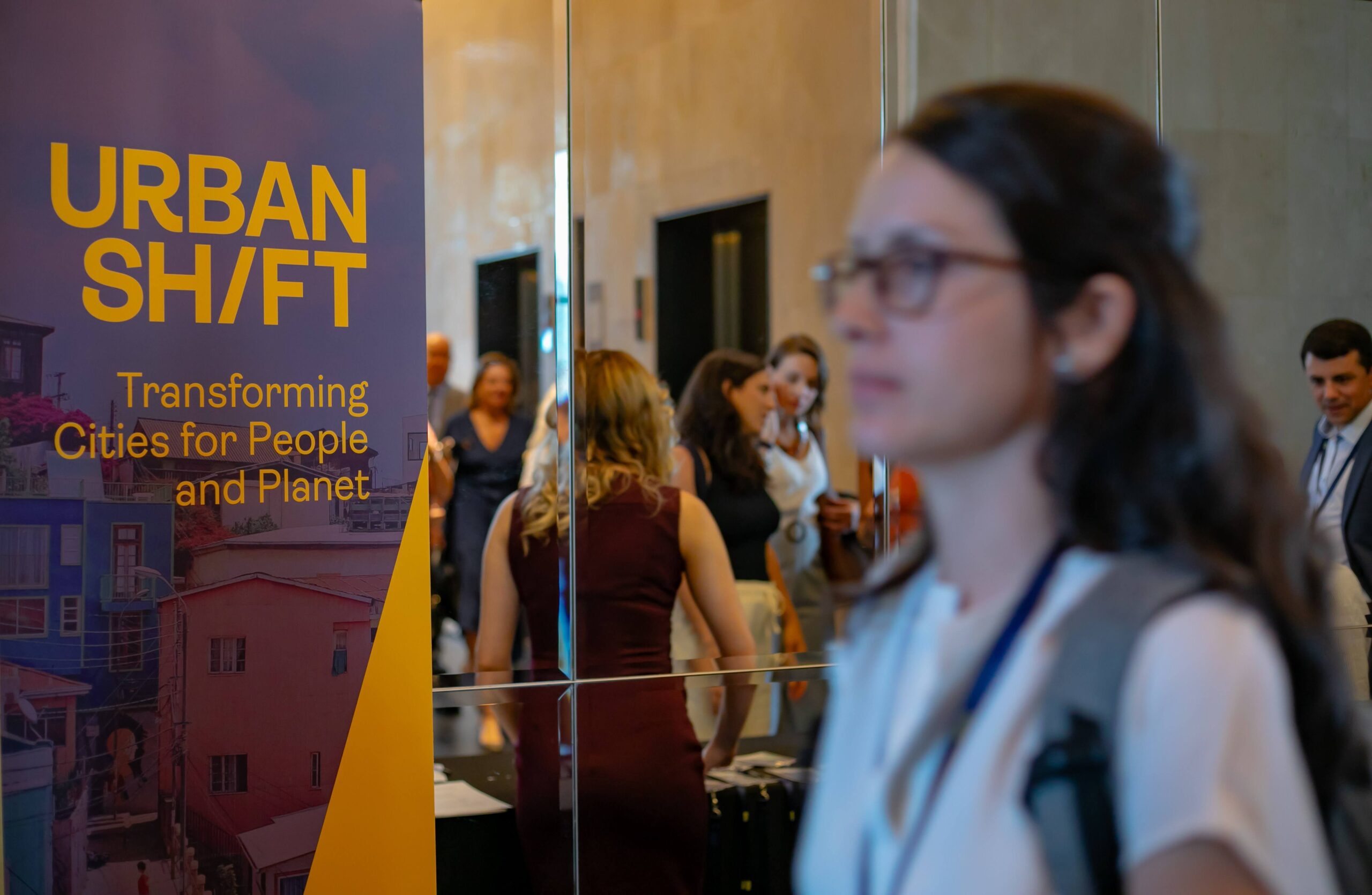
If you’re a regular reader of TheCityFix, you’re no stranger to the vital role that cities play in shaping the future of our planet. From leading the shift to zero-emission transportation networks to advancing solutions to curb plastic waste at the local level, cities have enormous potential to enact transformative changes that scale to global impact.
You also likely know that the inverse is true. With around 75% of the world’s CO2 emissions coming from urban areas, failure to act at the local level means that our path to averting the worst effects of climate change narrows considerably.
The good news is that cities around the world are filled with leaders, planners and engaged citizens committed to advancing transformative change quickly and thoughtfully. You may even be one of them! And within a challenge as large and complex as creating more resilient, sustainable and equitable cities, there are many levers of change—from neighborhood design to economic policy—and all are critical to creating the cities we and the planet all need to thrive.
With that in mind, UrbanShift—the Global Environment Facility-funded partnership led by UNEP and supported by C40 Cities, WRI and ICLEI—has created the City Academy: a free online resource offering access to eight in-depth, self-paced courses on critical themes related to integrated urban development. This online platform is designed to train urban practitioners of all levels to rethink existing urban systems and develop integrated processes that contribute to building climate-resilient, nature-positive cities.
While all City Academy courses are relevant to urban practitioners and leaders across the globe, the case studies and resources place a special focus on stories from Asia, Africa and Latin America. Cities in developing countries already face some of the most severe climate change impacts and are projected to triple in size in the next decade, making integrated urban development approaches essential for sustainable, equitable and healthy cities that are good for both people and planet.
Each of the City Academy courses has been rigorously researched and thoughtfully curated by experts from UrbanShift’s partner organizations and other leading institutions in the sustainability and urban development space. Covering 50+ hours of presentations, real-world case studies, videos and interactive quizzes, each course is designed to be self-contained and self-paced to allow for flexible learning. Upon completion, participants will receive a personalized certificate reflecting their commitment to study and knowledge development.
At the heart of the City Academy is the idea that we all have a role to play in shaping the sustainable, equitable cities of the future, and that knowledge is the foundation of action. Below, you can find more information about the full course offerings, and information on how to enroll and expand your understanding of these critical issues.
Green and Thriving Neighborhoods
Explore how to develop green and thriving neighborhoods in your city with an integrated vision, a set of design strategies, and a step-by-step delivery roadmap. This course will inspire you to think differently about neighborhoods and provide the necessary tools to take action.
Integrated Climate Action Planning
How can your city tackle climate change and build a more sustainable and just future? This course provides guidance and inspiration for cities to develop their own science-driven climate action plans, based on the experiences and best practices of cities around the world.
Accessing Urban Climate Finance
This course aims to increase the capacity of city-level actors to mobilize and access finance for sustainable urban infrastructure projects. It offers guidance to subnational governments to better understand the planning, design and financing processes for these critical projects.
Accommodating Urban Growth
Local governments in rapidly expanding cities must ensure safe and affordable housing for the urban poor while reducing the cost of new public infrastructure, minimizing future emissions, conserving key natural assets and surrounding biodiversity, and enhancing urban resilience.
Circular Economy
Initiating a circular economic system in cities can bring a wealth of economic, social and environmental gains. In this course, learn how your city can benefit from moving away from the “take-make-waste” economic system and implementing circular strategies.
Integrated Urban Planning
This participatory management process advances a city’s ability to work across agencies, jurisdictions and sectors to solve key planning and environmental challenges while maximizing efficiencies.
Nature-Based Solutions
Explore how cities around the world are turning to Nature-based Solutions (NbS) to tackle some of their most pressing challenges. Find out about the key elements needed to implement contextually appropriate, multifunctional and cost-effective NbS in Global South cities.
Urban Biodiversity
How can cities protect biodiversity and secure the benefits of healthy ecosystems for all residents? This course focuses on biodiversity strategy in the context of city priorities and planning processes and provides tools to integrate nature-supportive actions into wider urban practices.
Eillie Anzilotti is Communications Lead for UrbanShift.
Mariana Orloff is a Senior Manager for Urban Development at WRI Ross Center for Sustainable Cities.








